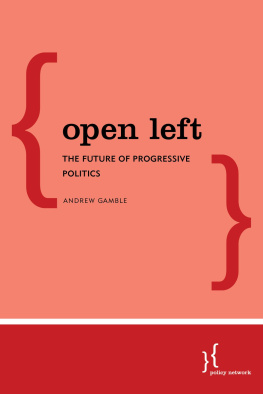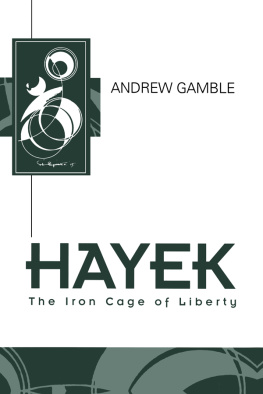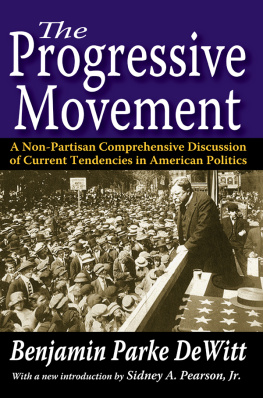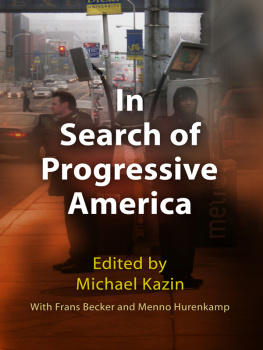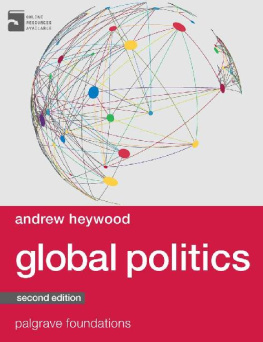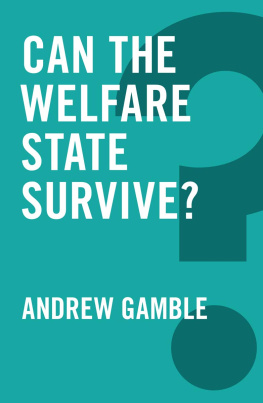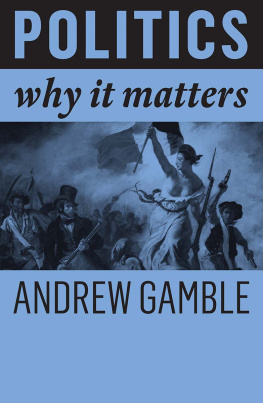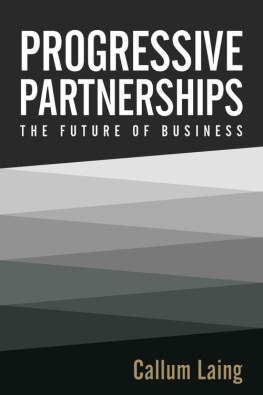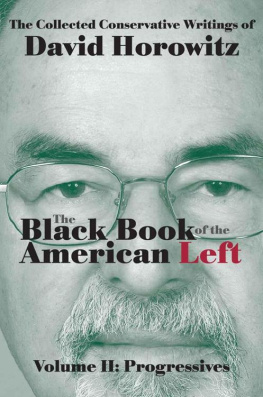OPEN LEFT
OPEN LEFT
The Future of Progressive Politics
Andrew Gamble
London New York
Published by Rowman & Littlefield International Ltd
Unit A, Whitacre Mews, 26-34 Stannary Street, London SE11 4AB
www.rowmaninternational.com
Rowman & Littlefield International Ltd. is an affiliate of Rowman & Littlefield
4501 Forbes Boulevard, Suite 200, Lanham, Maryland 20706, USA
With additional offices in Boulder, New York, Toronto (Canada), and Plymouth (UK)
www.rowman.com
Copyright 2018 by Policy Network
All rights reserved . No part of this book may be reproduced in any form or by any electronic or mechanical means, including information storage and retrieval systems, without written permission from the publisher, except by a reviewer who may quote passages in a review.
British Library Cataloguing in Publication Data
A catalogue record for this book is available from the British Library
ISBN: PB 978-1-78660-908-3
eBook 978-1-78660-909-0
Library of Congress Cataloging-in-Publication Data
Library of Congress Control Number: 2018945293

The paper used in this publication meets the minimum requirements of American National Standard for Information SciencesPermanence of Paper for Printed Library Materials, ANSI/NISO Z39.48-1992.
Printed in the United States of America
CONTENTS
This book originated in a series of seminars organised by Policy Network during 2017 on the theme of the next progressive project for Britain. It was planned against a bleak outlook for centre-left progressive politics across Europe, following repeated election defeats in the years since the financial crash in 2008, the increasing strength of populist nationalists, Britains vote to leave the EU in June 2016, and the election of Donald Trump in November 2016. The project was called Open Left because we wanted to invite a broad range of people from different backgrounds and institutions, those with particular party affiliations and those with none, and particularly people with different opinions about the way forward. We did not want to create yet another echo chamber. In the spirit of an Open Left we hoped everyone who attended would learn from the exchanges as we explored the many complex and perplexing problems which confront us.
This book does not attempt to be a summary of those discussions, but it draws on them, and sets out one vision of what an Open Left might be like and the kind of issues it should seek to confront. It does not seek to be comprehensive or encyclopedic. Many readers will disagree with some of the arguments and some of the priorities and emphases, and may question some of the omissions. But the book will have succeeded in its purpose if it provides a stimulus to further debate and exploration of the issues it raises.
Many of the problems and circumstances which confront progressives at the present time are common to all the western democracies and to many other states as well. In that sense this book addresses problems and raises themes which are general in scope. It also seeks to illustrate the argument by focusing on the circumstances, issues and problems which are specific to one particular country, in this case Britain. This is not because Britain is unique, or exceptional, or supremely important, in the way many Brexiteers imagine it to be. It is because it offers a window into a set of common problems, and hopes in that way to be a contribution to a more general conversation among those with a progressive disposition about how these challenges are being tackled in other countries.
In chapter 1 I discuss the present dilemmas and challenges facing progressives. Chapters 2, 3, 4 and 5 look at four substantive areas: security, the economy, welfare and democracy. Chapter 6 summarises the argument and explores the way ahead.
I would like to thank everyone at Policy Network for their help and encouragement with this book, and particularly Charlie Cadywould, Patrick Diamond, Matthew Laza and Roger Liddle, as well as the many people who attended the series of Policy Network seminars held in the second half of 2017 that have informed my thinking. I would also like to thank my colleagues and students at Sheffield, especially those at Sheffield Political Economy Research Institute, and at Cambridge for discussions over many years on the themes and issues raised in this book.
Policy Network has been a living embodiment of the ideals of an Open Left. It has promoted dialogue and discussion on progressive politics in a non-partisan and ecumenical spirit, and built networks across Europe and around the world. I have been very fortunate to have been involved in seminars and conferences which they have organised over many years and have learnt a great deal from the open intellectual exchanges they have fostered.
Andrew Gamble
April 2018
The years since the financial crash in 2008 have not been easy for progressive politics. Parties of the centre left, whether social democratic, green or social liberal, have lost ground and suffered defeats in almost all the major western democracies. In some cases, formerly successful progressive parties, like Pasok in Greece, have all but disappeared. In others, like the Dutch Labour party, they have lost the bulk of their support to new challengers. There have been some exceptions to this rule, particularly among new left parties such as Syriza in Greece, Podemos in Spain, and Jeremy Corbyns Labour in Britain. But although they have brought a new energy to the left and some fresh ideas, none have yet shown that they have a viable programme for government or vision for society which could start to rebuild the fortunes of the progressive left across Europe and beyond.
Twenty years ago, at the height of the boom that followed the end of the cold war and the quickening pace of globalisation, the picture was very different. Centre-left parties were in office across most of the western democracies, including the US. The third way was in full swing, and its promise to combine economic efficiency with social justice through the policies of the social investment state proved widely popular. A new era of progressive centre left advance seemed to be unfolding. There was even talk of a progressive century. These parties and governments were working within the constraints of the new international order shaped by the doctrines of neoliberalism and the opportunities of globalisation, but they were demonstrating that there were practical alternatives to the kind of policies pursued by the Thatcher government and the Reagan administration in the 1980s.
This was a period of relative optimism and confidence that increasing political and economic cooperation could begin to solve some of the pressing problems with which the world was confronted, particularly on the environment, global poverty and nuclear proliferation. The rules-based international order, which had collapsed amid the economic slumps and military conflicts of the 1930s and 1940s, was rebuilt under US leadership after 1945 and, despite challenges and upheavals, particularly during the cold war and the stagflation of the 1970s, it had survived. With the collapse of the Soviet Union in 1991 and the increasing participation in the global economy of some of the worlds most populous and poorest nations, especially China and India, a fresh beginning seemed possible. A new world order bringing all the nations of the world into economic and political cooperation within a single set of institutions and rules seemed to some within reach.

 The paper used in this publication meets the minimum requirements of American National Standard for Information SciencesPermanence of Paper for Printed Library Materials, ANSI/NISO Z39.48-1992.
The paper used in this publication meets the minimum requirements of American National Standard for Information SciencesPermanence of Paper for Printed Library Materials, ANSI/NISO Z39.48-1992.
